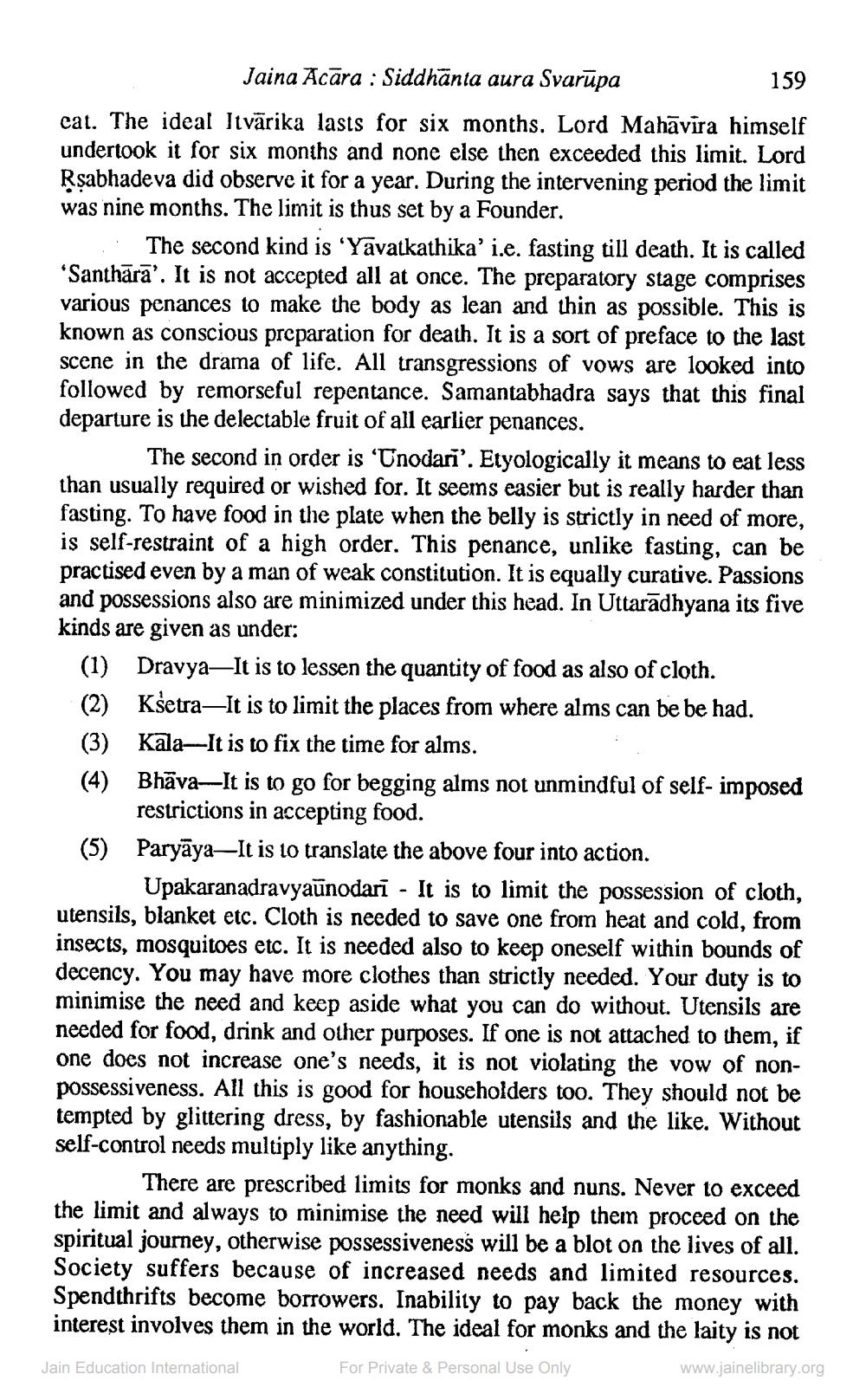________________
Jaina Acāra : Siddhanta aura Svarūpa
159
cat. The ideal ltvārika lasts for six months. Lord Mahāvīra himself undertook it for six months and none else then exceeded this limit. Lord Rsabhadeva did observe it for a year. During the intervening period the limit was nine months. The limit is thus set by a Founder.
.: The second kind is 'Yavatkathika' i.e. fasting till death. It is called 'Santhārā'. It is not accepted all at once. The preparatory stage comprises various penances to make the body as lean and thin as possible. This is known as conscious preparation for death. It is a sort of preface to the last scene in the drama of life. All transgressions of vows are looked into followed by remorseful repentance. Samantabhadra says that this final departure is the delectable fruit of all earlier penances.
The second in order is ‘Unodari'. Etyologically it means to eat less than usually required or wished for. It seems easier but is really harder than fasting. To have food in the plate when the belly is strictly in need of more, is self-restraint of a high order. This penance, unlike fasting, can be practised even by a man of weak constitution. It is equally curative. Passions and possessions also are minimized under this head. In Uttaradhyana its five kinds are given as under:
(1) Dravya—It is to lessen the quantity of food as also of cloth. (2) Kšetra—It is to limit the places from where alms can be be had. (3) Kala-It is to fix the time for alms. (4) Bhāva-It is to go for begging alms not unmindful of self-imposed
restrictions in accepting food. (5) Paryāya—It is 10 translate the above four into action.
Upakaranadravyaūnodarī - It is to limit the possession of cloth, utensils, blanket etc. Cloth is needed to save one from heat and cold, from insects, mosquitoes etc. It is needed also to keep oneself within bounds of decency. You may have more clothes than strictly needed. Your duty is to minimise the need and keep aside what you can do without. Utensils are needed for food, drink and other purposes. If one is not attached to them, if one does not increase one's needs, it is not violating the vow of nonpossessiveness. All this is good for householders too. They should not be tempted by glittering dress, by fashionable utensils and the like. Without self-control needs multiply like anything.
There are prescribed limits for monks and nuns. Never to exceed the limit and always to minimise the need will help them proceed on the spiritual journey, otherwise possessiveness will be a blot on the lives of all. Society suffers because of increased needs and limited resources. Spendthrifts become borrowers. Inability to pay back the money with interest involves them in the world. The ideal for monks and the laity is not
Jain Education International
For Private & Personal Use Only
www.jainelibrary.org




